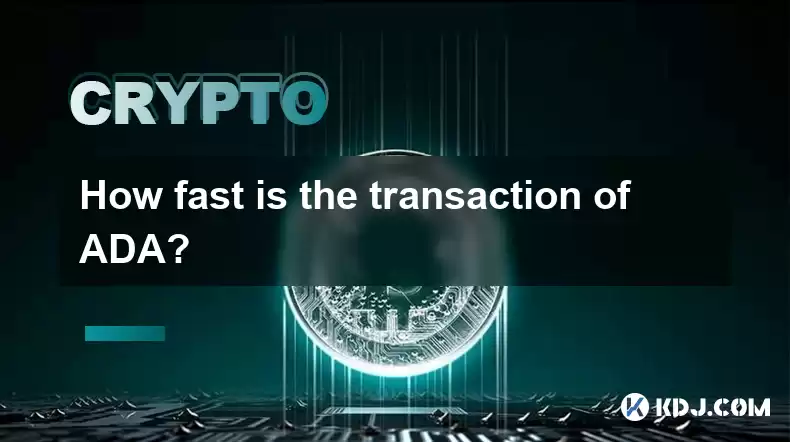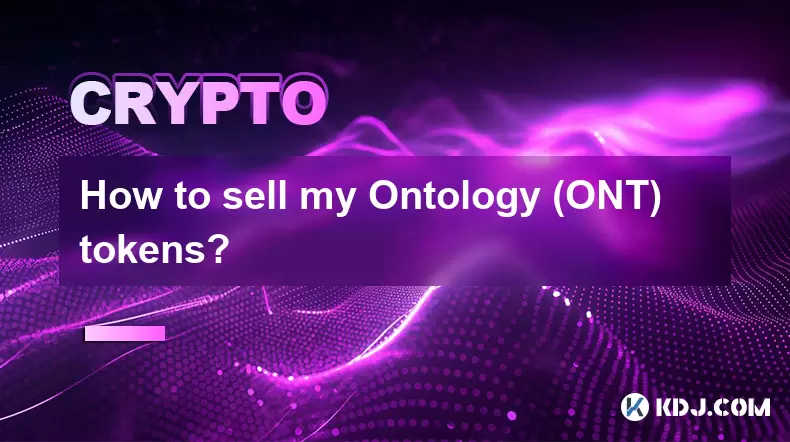-
 Bitcoin
Bitcoin $116400
-0.36% -
 Ethereum
Ethereum $4033
3.40% -
 XRP
XRP $3.302
-1.26% -
 Tether USDt
Tether USDt $1.000
-0.02% -
 BNB
BNB $796.1
1.67% -
 Solana
Solana $177.8
1.89% -
 USDC
USDC $0.9999
0.00% -
 Dogecoin
Dogecoin $0.2314
4.09% -
 TRON
TRON $0.3381
0.14% -
 Cardano
Cardano $0.7989
1.22% -
 Stellar
Stellar $0.4496
-1.84% -
 Chainlink
Chainlink $20.42
9.42% -
 Hyperliquid
Hyperliquid $41.17
0.88% -
 Sui
Sui $3.914
3.77% -
 Bitcoin Cash
Bitcoin Cash $584.7
1.52% -
 Hedera
Hedera $0.2632
-0.54% -
 Avalanche
Avalanche $24.09
3.40% -
 Ethena USDe
Ethena USDe $1.001
-0.02% -
 Litecoin
Litecoin $123.2
1.33% -
 Toncoin
Toncoin $3.318
-0.04% -
 UNUS SED LEO
UNUS SED LEO $8.984
-0.05% -
 Shiba Inu
Shiba Inu $0.00001323
2.85% -
 Uniswap
Uniswap $10.90
4.41% -
 Polkadot
Polkadot $3.999
3.34% -
 Dai
Dai $1.000
0.01% -
 Cronos
Cronos $0.1630
9.64% -
 Bitget Token
Bitget Token $4.484
0.82% -
 Monero
Monero $272.4
2.44% -
 Pepe
Pepe $0.00001173
6.03% -
 Aave
Aave $290.8
2.88%
How fast is the transaction of ADA?
ADA transaction speeds vary; average confirmation times range from seconds to minutes, influenced by network congestion and fees. Higher fees incentivize faster processing, while solutions like Hydra aim to drastically improve throughput via off-chain transactions.
Mar 03, 2025 at 12:48 pm

Key Points:
- ADA transaction speeds are variable, depending on network congestion and transaction fees.
- Average confirmation times generally range from a few seconds to several minutes under normal conditions.
- Higher transaction fees can incentivize faster processing by network validators.
- Scalability solutions like Hydra are being developed to significantly improve transaction throughput.
- Understanding on-chain vs. off-chain transactions is crucial for appreciating ADA's speed potential.
How Fast is the Transaction of ADA?
The speed of ADA transactions, like many cryptocurrencies, isn't a fixed number. It's a dynamic value influenced by several factors. While Cardano aims for fast and efficient transactions, the actual speed you experience will vary. Several elements impact the processing time.
Network Congestion plays a significant role. During periods of high activity on the Cardano network, transactions might take longer to confirm. This is simply due to the increased number of transactions competing for processing power. Think of it like a busy highway – more cars mean slower travel.
Transaction Fees also influence speed. While Cardano's fees are generally low compared to some other blockchains, increasing the fee can incentivize network validators to prioritize your transaction. Essentially, you're paying a premium for faster processing. This is similar to tipping a server for quicker service.
Average Confirmation Times provide a general idea. Under typical conditions, you can expect ADA transactions to be confirmed within a few seconds to several minutes. However, this is just an average. Extreme network congestion could lead to significantly longer wait times.
Cardano's architecture is designed for scalability. The team behind Cardano is actively working on solutions to improve transaction speeds and handle a greater volume of transactions. This includes implementing technologies like Hydra, a layer-2 scaling solution designed to significantly boost throughput. Hydra allows for off-chain transactions, dramatically increasing the network's capacity.
Understanding On-Chain vs. Off-Chain Transactions is key. On-chain transactions are recorded directly on the main Cardano blockchain. Off-chain transactions, facilitated by solutions like Hydra, occur off the main blockchain, significantly increasing speed and reducing congestion on the main network. Think of it like using a side road to avoid traffic on the main highway.
The speed of ADA transactions is also affected by the block time. Cardano's blockchain produces a new block approximately every 20 seconds. This means that a transaction can theoretically be confirmed within this timeframe, although network congestion and transaction fees can affect this.
Factors Affecting ADA Transaction Speed:
- Network Congestion: High network usage slows down transaction processing.
- Transaction Fees: Higher fees can expedite processing.
- Validator Capacity: The processing power of validators influences speed.
- Block Time: Cardano's block time is approximately 20 seconds.
- Scalability Solutions: Hydra and future upgrades aim to significantly increase throughput.
How to Improve ADA Transaction Speed:
- Increase Transaction Fees: A slightly higher fee may result in faster confirmation.
- Choose Less Congested Times: Avoid peak hours for faster processing.
- Use a Reliable Wallet: A well-maintained wallet can optimize transaction efficiency.
- Monitor Network Status: Checking the network's health can help anticipate delays.
Understanding the Role of Validators:
Cardano's network relies on validators to confirm transactions. The more validators processing transactions, the faster the overall network can handle them. The distribution and capacity of validators directly impact transaction speed. A well-distributed and powerful validator network is crucial for maintaining fast and efficient transactions.
The Future of ADA Transaction Speed:
Cardano's development team is continuously working to enhance its scalability and efficiency. Future upgrades and the implementation of solutions like Hydra are expected to drastically improve transaction speeds and allow the network to handle a substantially larger volume of transactions. These advancements are vital for Cardano to remain competitive in the ever-evolving cryptocurrency landscape.
Frequently Asked Questions:
Q: Is ADA faster than Bitcoin? A: Generally, ADA transactions are faster than Bitcoin transactions due to its different consensus mechanism and architecture. However, the actual speed depends on network conditions.
Q: What is the maximum transaction speed of ADA? A: There isn't a fixed maximum speed. It depends entirely on the factors mentioned above – network congestion, transaction fees, and the efficiency of the network's infrastructure.
Q: Are there any risks associated with paying higher transaction fees for faster processing? A: The primary risk is paying more than necessary. If network congestion is low, a high fee might be unnecessary. Always check the current network status before adjusting your transaction fees.
Q: How does Hydra improve ADA transaction speed? A: Hydra is a layer-2 scaling solution that allows for many transactions to occur off-chain, significantly reducing the load on the main Cardano blockchain and thus increasing the overall speed and throughput of the network.
Q: What is the typical cost of an ADA transaction? A: The cost is generally very low, often less than a cent, but it can increase during periods of high network congestion. The actual cost depends on the transaction size and network conditions.
Disclaimer:info@kdj.com
The information provided is not trading advice. kdj.com does not assume any responsibility for any investments made based on the information provided in this article. Cryptocurrencies are highly volatile and it is highly recommended that you invest with caution after thorough research!
If you believe that the content used on this website infringes your copyright, please contact us immediately (info@kdj.com) and we will delete it promptly.
- Shiba Inu (SHIB) in the Crypto Landscape: Community, Trends, and Future Outlook
- 2025-08-09 20:30:12
- Lasers in Modern Warfare: Iron Beam and the Future of Defense
- 2025-08-09 20:30:12
- Maxi Doge Presale: The Meme Coin That's Pumping Iron and Prices!
- 2025-08-09 19:10:11
- Rare Coin Warning: Don't Get Fooled by That 1p Coin!
- 2025-08-09 18:50:12
- Cardano, Unilabs, and Tron Price: Decoding the Latest Crypto Buzz
- 2025-08-09 18:30:12
- Aerodrome Finance: Price Targets and the Bullish Channel - What's Next?
- 2025-08-09 18:50:12
Related knowledge

Where can I buy UMA (UMA)?
Aug 07,2025 at 06:42pm
Understanding UMA and Its Role in Decentralized FinanceUMA (Universal Market Access) is an Ethereum-based decentralized finance (DeFi) protocol design...

How to buy Storj (STORJ) tokens?
Aug 09,2025 at 07:28am
Understanding Storj (STORJ) and Its Role in Decentralized StorageStorj is a decentralized cloud storage platform that leverages blockchain technology ...

What is the best app to buy Nano (NANO)?
Aug 09,2025 at 03:35am
Understanding Nano (NANO) and Its Unique FeaturesNano is a feeless, instant cryptocurrency designed for fast peer-to-peer transactions. Unlike many ot...

Where can I purchase Siacoin (SC)?
Aug 08,2025 at 11:14am
Understanding Siacoin (SC) and Its Role in the Sia NetworkSiacoin (SC) is the native cryptocurrency of the Sia decentralized cloud storage platform, a...

How to sell my Ontology (ONT) tokens?
Aug 09,2025 at 06:08pm
Understanding Ontology (ONT) and Its Trading EcosystemBefore selling your Ontology (ONT) tokens, it's essential to understand the nature of the crypto...

Where can I buy OMG Network (OMG)?
Aug 08,2025 at 12:57pm
Understanding OMG Network (OMG) and Its PurposeThe OMG Network, originally known as OmiseGO, is a layer-2 scaling solution built on the Ethereum block...

Where can I buy UMA (UMA)?
Aug 07,2025 at 06:42pm
Understanding UMA and Its Role in Decentralized FinanceUMA (Universal Market Access) is an Ethereum-based decentralized finance (DeFi) protocol design...

How to buy Storj (STORJ) tokens?
Aug 09,2025 at 07:28am
Understanding Storj (STORJ) and Its Role in Decentralized StorageStorj is a decentralized cloud storage platform that leverages blockchain technology ...

What is the best app to buy Nano (NANO)?
Aug 09,2025 at 03:35am
Understanding Nano (NANO) and Its Unique FeaturesNano is a feeless, instant cryptocurrency designed for fast peer-to-peer transactions. Unlike many ot...

Where can I purchase Siacoin (SC)?
Aug 08,2025 at 11:14am
Understanding Siacoin (SC) and Its Role in the Sia NetworkSiacoin (SC) is the native cryptocurrency of the Sia decentralized cloud storage platform, a...

How to sell my Ontology (ONT) tokens?
Aug 09,2025 at 06:08pm
Understanding Ontology (ONT) and Its Trading EcosystemBefore selling your Ontology (ONT) tokens, it's essential to understand the nature of the crypto...

Where can I buy OMG Network (OMG)?
Aug 08,2025 at 12:57pm
Understanding OMG Network (OMG) and Its PurposeThe OMG Network, originally known as OmiseGO, is a layer-2 scaling solution built on the Ethereum block...
See all articles

























































































